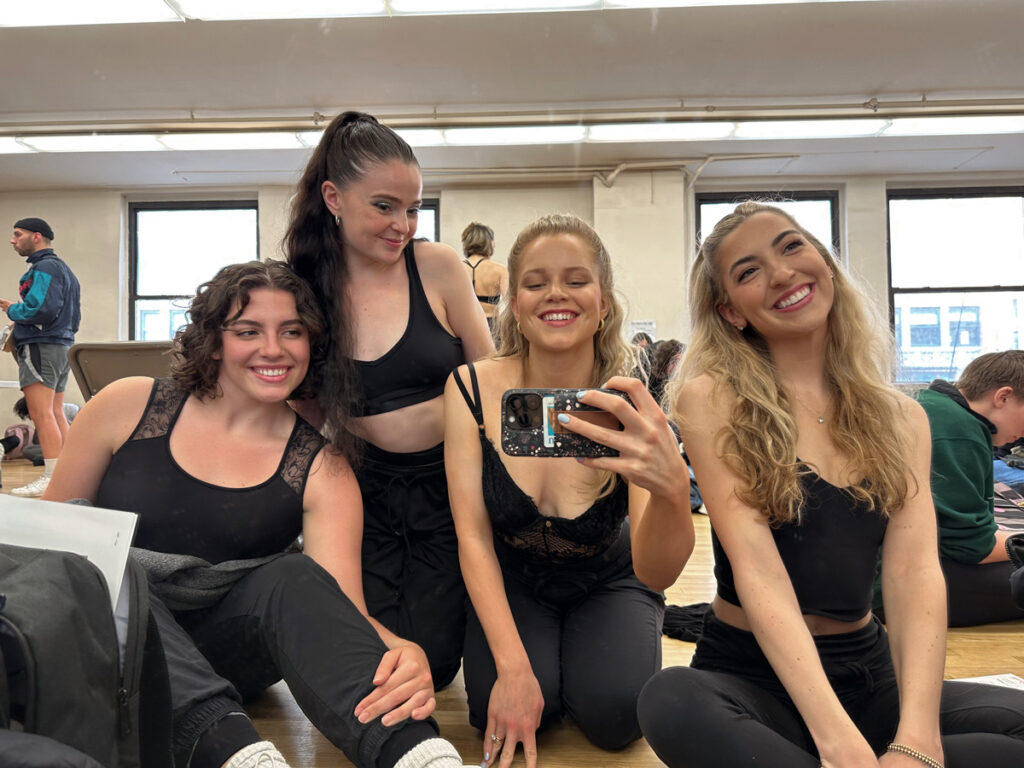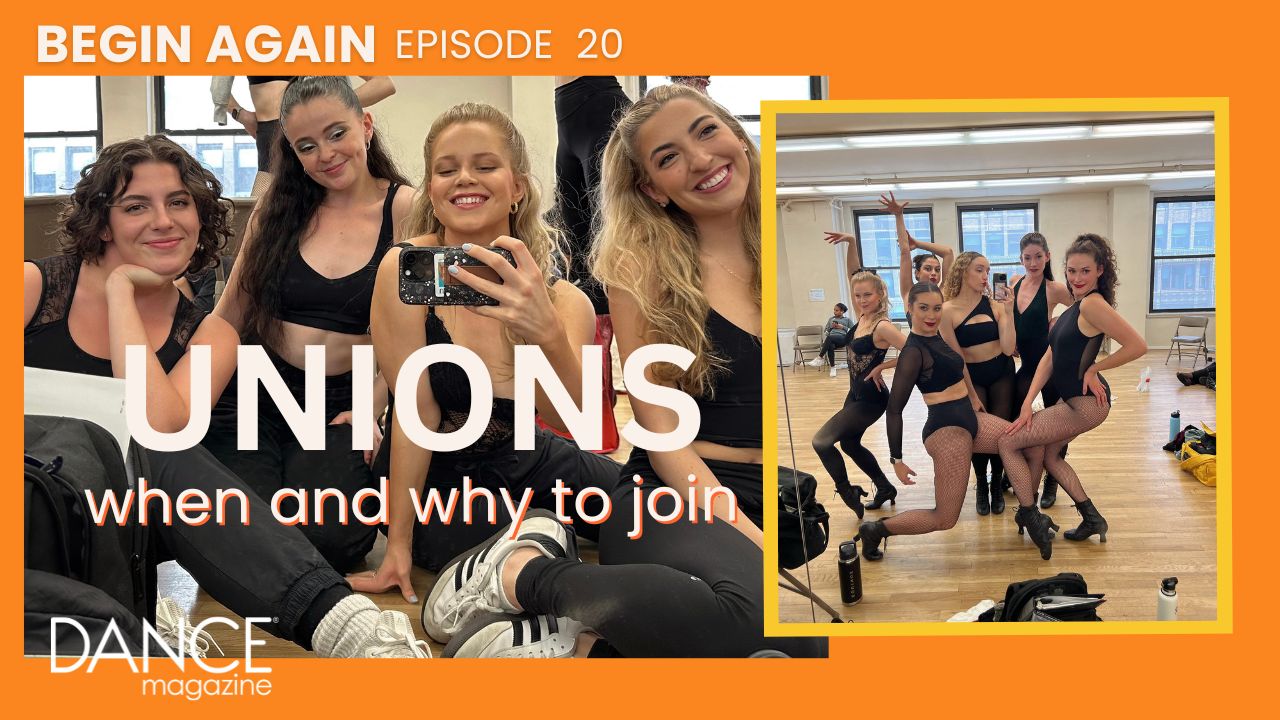Begin Again: When and Why Should We Join the Union?
To join the union, or not to join the union? That is the question—or so I thought.
I’m a nonunion musical theater performer, and I recently attended my first in-person Equity chorus call (ECC) for the Broadway show Wicked. (Ever heard of it?) I found out about the audition late the day of. So by the time I got to Open Jar Studios in midtown Manhattan, I was number 80 on the nonunion list—a paper that dancers who are not members of the Actors’ Equity Association wake up at 4 am to write their names on, in case casting chooses to see nonunion artists after they finish with Equity performers.
At 3:15 pm, the monitor finally started calling names off of the nonunion list. This is it, I thought. I’m actually going to get to audition for Wicked! But then I saw a casting director walk into the room and whisper something to the monitor. With an uncomfortable look, the monitor shouted, “That’s all we will be seeing for today—thank you for your time.” I felt my stomach drop.
The benefits of joining the union go far beyond audition prioritization, of course. That said, I didn’t end up joining Equity immediately after that unfortunate audition day. When I asked around, I discovered that the question isn’t “if” a dancer should join the union—it’s “when.”
To get the inside scoop, I talked to my agent, an Equity councilor, and a dancer who recently chose to join the union.
Actors’ Equity Association 101
The Actors’ Equity Association represents American actors and stage managers in theater, negotiating wages and securing working protections. All Broadway shows require their performers to be employed on an Equity contract. In the past, a dancer could only join the union if they had signed a contract for an Equity show; were a member of a sister union, like AGMA or SAG-AFTRA; or accrued “Equity points” by working at specific theaters for a certain number of weeks. That changed during the course of COVID. Now, individuals who can prove they’ve performed professionally at one point, through documents like a W-2 and/or a contract, are also eligible. “If you have been paid to perform, you are able to join, period,” says Equity councilor Bear Bellinger. (For more details on exactly how to join, check out the Actors’ Equity Association website.)
New York City–based performer Mattie Tucker Joyner recently did just that. Though this past audition season was her first as a union member, she is already seeing the benefits. “I have a much healthier relationship with auditioning now,” she says. “Rather than waking up at 3 am and spending entire days at Pearl Studios, I can be seen and have work–life balance.”
Joyner decided to join because she wanted to be able to audition more frequently and to build rapport with casting directors and choreographers. “This industry is all about who you know and how you present yourself,” she says. “That’s hard to show if you can’t get in the room.”
The Question of Timing
So why doesn’t everyone just join Equity? According to my agent, Lucille DiCampli, it’s often a matter of timing. “I’m 100 percent pro-union,” she says. “But once you join, there is no turning back. You can no longer work on nonunion projects, and when you’re starting out, you might need to build your resumé through nonunion work.”
One of the primary benefits of joining the union at the beginning of your career is the ability to attend ECC open calls. But that might not be enough to justify paying union initiation fees and dues: According to DiCampli, shows often hire from agent appointments, not open calls. “Has anyone in the history of ECCs booked? Yes. But it’s not as common,” she says. And there’s simply less union work to go around right now. With the closing of various Broadway shows, including Bob Fosse’s DANCIN’ and The Phantom of the Opera, many opportunities were lost. “People keep using the word ‘unprecedented,’ but this is ‘unprecedented-plus,’ ” she says.
My first question after hearing all of this was “Do I need to continue waking up at 4 am to attend ECC calls, then?” In my case, DiCampli advised patience. “I would sooner have you in class building connections,” she told me. “Keep your options open. If you make a decision to cut things out, make sure it is the right decision. All of my clients will join the union when the time is right.”

So what am I going to do? I suppose I’m going to trust the advice of my agent and hold off a little longer. I’ll continue to take class and attend agency appointments—and maybe ECC calls that I really think I’m right for. (My cute husband said he would do the 4 am wakeup calls for me from time to time. Bless him!) But I’ll definitely join the union one day, when the time is right. I’m looking forward to adding my voice to the chorus of people demanding equitable pay and other workplace protections.
To see what attending an ECC audition as a nonunion performer looks like, head over to Dance Magazine’s YouTube channel.




